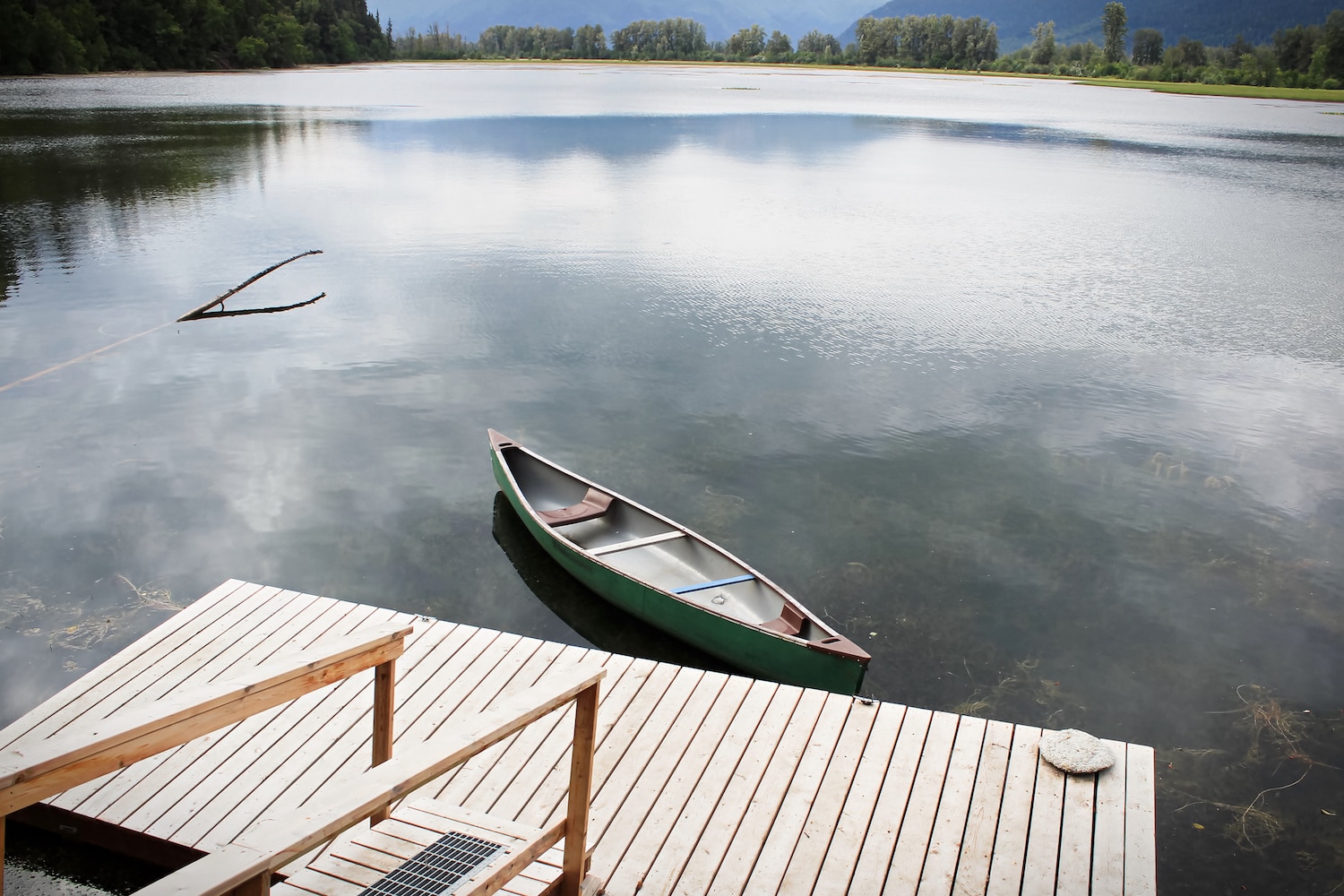
Floating Docks vs. Fixed Docks: Which is Right For You?
Both floating and fixed docks are appealing for different reasons, and it can feel impossible to decide which is best for your boat if you like both options.
But if you have to choose between a floating dock vs. a fixed dock, it’s important to compare what makes both of these structures unique. You want to consider the body of water it’s going to be placed in and what activities it’s going to be used for to make sure you select the type best suited for your needs.
Still need some help deciding? Factor in the pros and cons of both options in our comparison guide below.
What Are Floating Docks?
Floating docks remain true to their name because they rise and fall with the water, essentially floating on its surface. Their modernized structure is buoyant and rests on the water to match the changing level of the tide.
This type of dock is beneficial in climates where the water freezes every season or tide levels change dramatically. The term floating might have the connotation of being frail, but these structures are sturdy and built to withstand frequent storms during the rainy season.
They can be constructed out of a variety of materials, making them suitable for different budgets and environments.
Owners have more freedom when it comes to placement because they are available in a variety of configurations and can be stationed in both shallow and deep water. The permit process is also simple because they don’t impact the sediment like fixed docks.
What Are Fixed Docks?
Fixed docks, also referred to as stationary or permanent, are traditional and conventional. They are fixed or secured underwater with piling to keep your boat in place. The length of the pilings required to keep it fixed depends on the depth of the water where it’s placed.
Fixed docks don’t have to be entirely immovable and difficult to manage. Some can be customized to have height adjustment features to match fluctuating water levels better. The height of the pilings creates more functional ease for watercraft and can give a more stunning look at the water.
Stationary docks are ideal for choppy or stormy waters because they can withstand frequent movement. They also make a great spot for entertaining with the option to create shady spots or an extra level for sightseeing.
The permit process can be a drag because it’s time-consuming and must be done if you plan to place it in the sediment. However, the effort is worth it when expecting high water traffic or if you want a permanent spot for activities like fishing or watching the sunset.
What Do They Have in Common?
When figuring out which is best between a floating dock vs. a fixed dock, it’s just as important to look at the similarities as it is to look at the differences.
Both can be constructed from lumber to give the best support in the water. The way the lumber is structured to meet your needs may differ, but both types allow for some customization.
Having either makes it easier to spend time outdoors. Both types give you a place to sit and look out into the water or give you a supportive platform to enter and exit the water. Without the additional structure, spending time in the water and watching the surrounding nature would be less convenient.
Floating Dock vs. Fixed Dock: Pros and Cons
Both structures come with unique features that can make them the more desirable option over the other. Figuring out which one is the best for you depends mainly on personal and environmental factors.
If you properly maintain and use quality parts, your dock can become a staple feature of your property for years to come. If you’re unsure what you’re looking for or what the main function of this structure will be, this pros and cons list can help you figure that out. Neither system is necessarily better than the other; one is just better suited to your needs and preferences.
Floating Dock
Pros
- Quick and easy installation and permitting
- Easy to remove or reposition
- Affordable
- More resistant to storms and damage
- Customizable
- Family-friendly
Cons
- Noisy
- Not recommended for heavy water traffic
- Doesn’t support a boat lift
- Can damage floating devices during low tide
Fixed Dock
Pros
- Intensive permitting required
- Offer more security and protection
- Less affected by water movement
- Supports high traffic areas
- Supports a boat lift
- Better suited for shallow water
- Lasts longer overall
Cons
- Difficult and expensive to repair
- Challenging to get in and out of the water from
- Fewer options for customization
- Requires longer pilings for high water levels
Get in Touch with Our Team
Have you decided on a floating dock vs fixed dock after weighing the pros and cons? If not, take your time. Knowing exactly what you need out of a dock can take time to figure out, and you shouldn’t rush into purchasing either a fixed or floating dock.
Once you are sure which type is right for you, the process of building your dream dock begins. Don’t hesitate to contact the Decks & Docks Team to make that dream a reality.
Our team can provide all of your deck and dock supply needs. We can answer any additional questions about the structure best suited for your home and carry the products you need to make it a highlighted feature on your property.
